Yesterday, I marched in the city with my daughter, Anne and a few hundred others. We were a small, eclectic and vocal crowd who patiently listened to several speeches while trying to avoid the burning rays of a sunny Melbourne Sunday.
I observed and chatted to several fellow marchers and reflected on my early involvement in the women’s movement, the issues that were at the forefront in the 1970s and those still on the agenda today.
It was lovely to share the afternoon with my daughter and know that both my girls are active feminists, not only caring about gender equality, but prepared to act and speak out, loud and proud when the occasion demands.
The term ‘International Women’s Day’ is important because although many western women in the ‘first’ world appear to be doing very well thank you, there are millions of girls and women in other countries we refer to as ‘third’ world, who are born into slavery, denied education, beaten, raped, and basically controlled, manipulated and abused from the minute they are born till the day they die.
Yesterday, former Prime Minister, Julia Gillard mentioned the denial of education to 31 million girls as an example. In a previous post, I’ve highlighted the epidemic proportions of family violence and its impact on women and children. I’ve also written about another shameful scourge – the suffering of women and children in detention, their only ‘crime’ seeking asylum in Australia thinking we are a haven from oppression.
There were several signs pointing out that we still have a long way to go even in Australia if we want true gender equality.
There are always politicians prepared to deny what was fought for: abortion has been decriminalised in Victoria for several years – let’s hope it remains a woman’s right to control her body.
But we are still struggling for equal pay for equal work, and for occupations seen as ‘mainly female’ to be as highly regarded and paid as well as those occupations deemed traditionally for males.
A woman who influenced me greatly in the 70s was Peggy Seeger and her rendition of Gonna be An Engineer clever poetry (read the transcript), like most memorable songs. I was fortunate to meet Peggy and Ewan MacColl when they were brought out to Australia to tour by the AMWU in 1976 when John Halfpenny was Victorian Secretary and still cherish the double cassette produced on their tour.
I remember mercurial Melbourne played its part that night too with a summer storm. The room at Trades Hall steamed as we dried out, but our enthusiasm wasn’t dampened. To the patter of heavy rain, we stamped our feet, clapped and roared to the folk duo’s amazing repertoire. A wonderful memory of the joyous feeling to be among like-minded thinkers!
When I went to university in Canberra in 1971, I joined Women’s Liberation. We met at Elizabeth Reid‘s house. This amazing woman became Prime Minister Gough Whitlam’s advisor when the Labor Government was elected in 1972. A watershed appointment and one many people didn’t like.
It was the beginning of women being appointed to positions of power – and so began the culture of vilification of these same women. Australia’s ‘tall poppy syndrome‘ ensures the media still goes into a frenzy when it denigrates women in power. (eg. the treatment of our first female Prime Minister, Julia Gillard)
It would take decades before the media could handle issues concerning women with maturity, about the same time it took for Reid’s significance to sink in.
Liz and my bosom buddy for much of my time at university, author Drusilla Modjeska, were great influences on my philosophical and intellectual development. They gave me courage, helped me find my voice and because of Drusilla, I began to believe I could be a writer – a dream and career still a work in progress!
The early marches in Melbourne for International Women’s Day focused on equal pay for equal work and health issues such as abortion and contraception. A lot of young women were activists, and the 70s saw the inclusion of the Gay Liberation Movement too – of course, Australia still struggling with the idea of equal marriage rights for all until 2018.
We were noisy and I can remember lots of chanting and singing. We rewrote the words to many traditional songs with our own flavour and enjoyed the dulcet tones of musicians like Judy Small, another influential woman I admire.
Judy’s Mothers, Daughters, Wives, one of the best anti-war songs around, but also an amazing social commentary, as is my favourite one of Judy’s and so relevant now as we suffer the ‘war against terror’ scaremongering and demonisation of refugees – You Don’t Speak for Me.
I am still active in the Union of Australian Women and equality before the law, at work and in our education and health system is very much on our agenda. Many people may not know about the Human Rights Law Centre, established in 2006 with half a dozen lawyers who care about humanity. It is an NGO relying on private donations from philanthropic organisations, other law firms and private individuals with a small contribution from the government.
Their independence from government important because they work on making the authorities fulfil obligations under the various national and international laws.
Human Rights Law Centre
There is an education component to their work as well as litigation, and they have publications plus a website with an amazing resources page. The copies of submissions under ‘Women’ include equal opportunity, decriminalization of abortion, family violence, and equal pay.
The Centre does a lot of work on refugee rights responding to government policies. They have also tackled Gay and Lesbian rights from the perspective of equality under the law. They do work for Amnesty International to improve Australia’s foreign policy. They monitor police powers and investigative techniques, keep abreast of the UN and other peak bodies and Australia’s compliance regarding international obligations and women’s rights, especially the right to be free from violence.
In September 2013, at a UAW Southern Branch meeting, Emily Christie, a human rights lawyer gave an eloquent and passionate rundown on her work, in discrimination law – particularly discrimination on the basis of disability, sex identity, and sexuality. Emily works for DLA Piper Australia, a global law firm, and is part of a pro bono team handling cases with a public interest aspect, on behalf of people who may be too poor to go through normal legal channels. Emily’s work and experience cover a broad scope, she chose two areas to share with us:
- The story of Norrie who does not identify as male or female and the fact that under the law ‘she’ can’t be protected because there are no appropriate words to describe or protect someone of non-specific sex in current gender and identity laws.
- Changes in the law at the national and international level that push boundaries and close gaps in women’s rights, particularly regarding abortion and domestic violence.
Norrie was born male in Scotland with gender dysphoria. Convinced to take ‘the cure’ of sexual reassignment surgery Norrie couldn’t identify as female either. Under Australian law, after surgery, a birth certificate can be changed, but you couldn’t choose to be intersex – or a non- specific gender. Our society has definite gender boundaries. Norrie and others have basic problems like what toilet to use, who to marry and what to put on official forms – especially since so many insist on knowing your gender even if it should be irrelevant.
Norrie applied to have non-specific on ‘her’ birth certificate, which the Registrar had no problem with, but that decision made the news and the Attorney General intervened to insist male or female must be stated. Norrie took the decision to VCAT. Sex is not defined in any legislation – it is just taken as read and although losing the first appeal, Norrie won in the Court of Appeal. Unfortunately, this judgement was also appealed. The High Court case 2014 was successful, mainly because there is a groundswell of supporters for sexual diversity. There was also a change to the Federal Sex Discrimination Act on August 1, 2013, to make discrimination on the grounds of sexual orientation, gender identity and intersex status unlawful.
The law has to define sex by what is happening in the real world, with categories broader than male or female. Norrie’s case records the first time judges recognised that people may not fit into a predetermined understanding of what they should be. The case is important because once people are recognised in law they can be protected and services provided for them. Gay, transgender, and intersex people now have protection at the federal level. There are new guidelines created for official forms like Passports, Centrelink, Medicare whereby a person’s sex is only asked if necessary, and there has to be the option of “X” (intersex) as well as male or female. Emily noted that the enrolment to vote forms have already been altered to reflect the updated law.
Australia is one of the first Western governments to take this step in law but cultural awareness will take some time. Interestingly, India and the Philippines have a cultural history of acknowledging an intersex community – with 6 million people in India identifying as intersex. Internationally Australia is ahead in laws pertaining to sex and gender diversity but not in marriage equality.
Unfortunately, because the section in UN Human Rights Charter still delineates marriage between male and female it is interpreted as being against same-sex marriage making it difficult to cite a UN convention in any legal argument. However, the UN Committee on Human Rights regarding sexuality may be conservative, but at least they are doing better on women’s rights.
International law has never been good on women’s rights, especially in the private sphere. The laws are written by men focussed on the public sphere with issues such as domestic violence and abortion unaddressed. This is changing with private issues made a public responsibility mirroring changes on the domestic front in Australia.
The UN has legislation about torture and this has been used to change the rhetoric on domestic violence enabling the use of international law to protect women at home. The UN recognises that gender discrimination and violence against women is systemic. Many governments are now forced to address these issues like war crimes.
A recent case in South America used international law to procure an abortion for a sick woman citing the denial would be tantamount to torture and cruel and inhumane.
However, because Australia does not have a Bill of Rights to protect human rights (one of the few western countries that doesn’t), individuals can’t sue the government if they don’t fulfil their obligations. The best tool we have for change is Federal Government intervention when the States do something wrong: e.g. Tasmania was the last state to decriminalise homosexuality.
A man took the issue to the UN and because the Federal Government makes laws to deal with external issues and obligations under international treaties they can pull the states into line and make state laws invalid.
However, if the Federal government chooses to ignore international conventions there are no real consequences except a loss of reputation and being scolded before a review board as we have seen recently with the report into children in detention.
IWD and Women’s Rights – Always worth Celebrating
I’m glad we celebrate International Women’s Day and I know we have a long way to go, especially changing cultural mindsets and challenging ingrained prejudices. However, tackling the injustices in the world and society is important – and speaking out for those still voiceless an imperative for those of us who live in a free society.
Last night, the ache in my ageing bones after traipsing through the city was definitely worth it! The right to protest and march in the street one I’ve enjoyed for a long time and to some people synonymous with who I am. I hope I can still march on IWD next year, and the year after, and many years to come!
My desire a bit like the dream to be a writer. Each day I’ll face the blank page and start writing, editing and rewriting and hope people read my words…

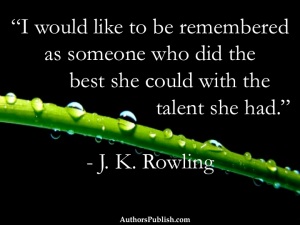
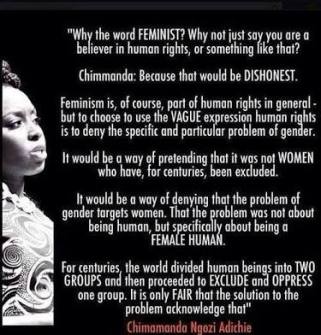
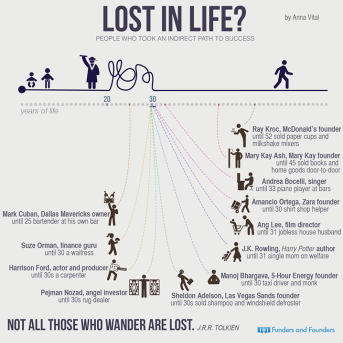
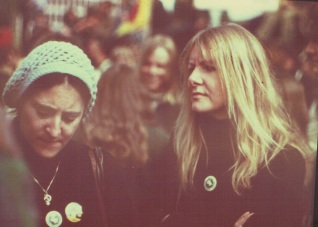
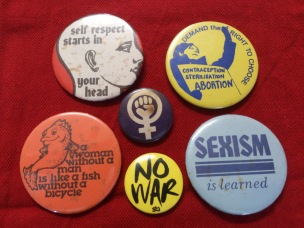
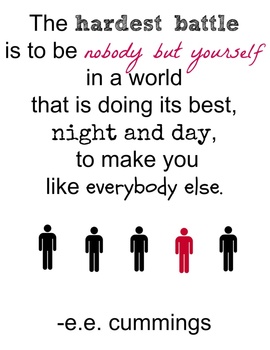
Another very reasoned and thoughtful piece Mairi, I do so enjoy your writing, but I must say that E.E. Cummings finished off this one just SO well….and of course it took you to recall and recognise this.
LikeLike
Thank you Kaye for taking the time always to read the blog and make such thoughtful and supportive comments:)
LikeLiked by 1 person